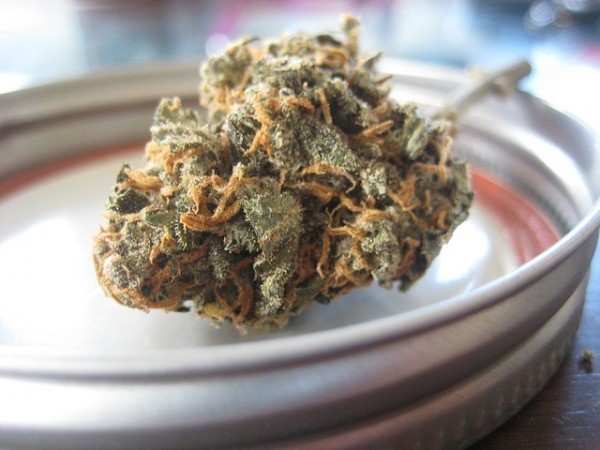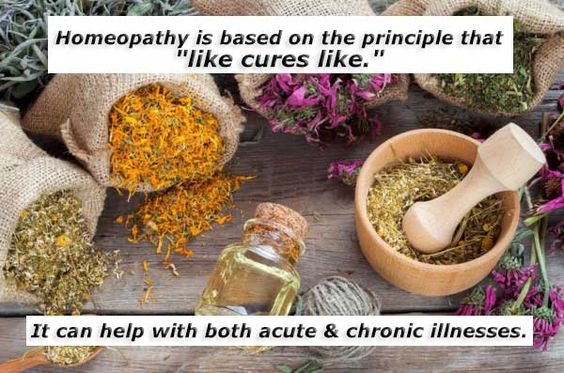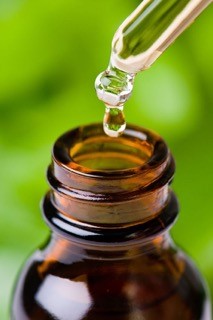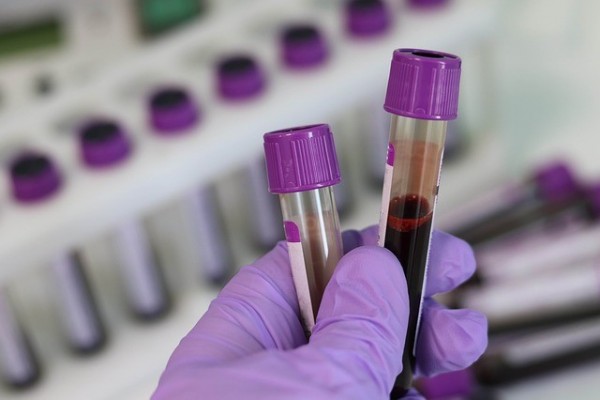Homeopathy for Chronic Pain

 Homeopathy Pain Relief
Homeopathy Pain Relief
Homeopathy is based on the principle that "like cures like." In other words, a substance that causes the symptoms of the illness is taken in small amounts to treat or cure it. In some cases, it is the active ingredient that contributed to the illness in the first place. The substance (active ingredient) is highly diluted and used in the smallest amount possible, to trigger the body’s own natural healing mechanisms.
Homeopathy is a holistic practice that treats the person as a whole considering all aspects of physical, mental, and emotional health, rather than focusing on the specific disease or labeled illness. Homeopathy is recognized by the World Health Organization as the second largest therapeutic system in use in the world. It has been around for over 200 years.

 Homeopath remedies are made from natural sources of plants, animals, and minerals. They are environmentally friendly and cruelty free. They are available in grocery stores, drug stores, health food stores, and of course homeopathic pharmacies. But, it is highly recommended to visit a homeopathic physician to receive the right remedy for safe and effective treatment. Homeopathic remedies may be prescribed as ointments, gels, drops, creams, tablets, or sugar pellets. All remedies are diluted with either water or alcohol at different ratios depending on the individual.
Homeopath remedies are made from natural sources of plants, animals, and minerals. They are environmentally friendly and cruelty free. They are available in grocery stores, drug stores, health food stores, and of course homeopathic pharmacies. But, it is highly recommended to visit a homeopathic physician to receive the right remedy for safe and effective treatment. Homeopathic remedies may be prescribed as ointments, gels, drops, creams, tablets, or sugar pellets. All remedies are diluted with either water or alcohol at different ratios depending on the individual.
With conventional medicine there is a “one size fits all” approach to prescribing medicine based on a category of symptoms. With medicine the illness will be covered up, and if a person goes off the medicine all symptoms will return. But, with homeopathy the underlying problem will be addressed so that person’s healing responses can be stimulated. Therefore, a person can heal completely and no longer need any medications.
Symptoms are actually the body’s way of trying to heal itself and restore balance. Homeopathy recognizes the importance of symptoms as useful defenses of the body, and by strengthening the body’s defense system the body can effectively heal itself. An example of this is coughing, it is known as a protective mechanism for clearing breathing passages. Another example is diarrhea, it’s a fast, defensive effort to remove pathogens or irritants from the colon.
Homeopathy is used for an extremely wide range of health conditions. Some of the most common conditions homeopathy has been used for include allergies, anxiety disorders, asthma, arthritis, autoimmune disorders, depression, digestive problems, fatigue, migraines, skin disorders, and thyroid problems (Dr. Axe FOOD IS MEDICINE). Homeopathic remedies are not just limited to chronic illnesses, they can also help with acute illnesses like colds, ear infections, and sore throats.
However, it is important to understand that homeopathic treatment is not based on – nor limited by – the name of a disease or medical condition (National Center for Homeopathy). Even health conditions that don’t have an official name can be addressed with homeopathic remedies.
 They are created to have the smallest dose possible, while still being effective, leaving no unwanted side effects. Homeopathic treatments are even considered to be safe treatments for pregnant woman, newborns, children, senior citizens, and animals. However, these treatments should not be used in serious or life-threatening conditions.
They are created to have the smallest dose possible, while still being effective, leaving no unwanted side effects. Homeopathic treatments are even considered to be safe treatments for pregnant woman, newborns, children, senior citizens, and animals. However, these treatments should not be used in serious or life-threatening conditions.
Homeopathic remedies have been regulated by the FDA since the late 1980’s. They are regulated as drugs under the Federal Food, Drug and Cosmetic Act (FDCA). A 2007 systematic review also showed that homeopathic remedies are safe when taken under the supervision of a trained professional with quality products. Over the counter homeopathic remedies are not as safe or always FDA approved. It is advised to consult a trained physician before taking anything over the counter.
Hahnemann wasn’t content with the medicine of his day and was in search of a new form of medicine. He discovered the first principle of “like curing like” when he used a small amount of cinchona bark (containing quinine, the drug to treat malaria) to develop symptoms of malaria (Science Based Medicine). He performed many of these tests on himself, and saw great success. He later came up with the law of ‘infinitesimal doses’ or ‘minimum doses.’ This law was the concept that when drugs are diluted in water or alcohol, they increase in therapeutic potency. Today, dilutions are 1:100 and are repeated 6 to 30 times. Between each dilution the substance is violently shaken to activate the properties of the drug.
By 1900, around 20% of doctors in the United States were homeopaths (Center for Homeopathy). However, because of various political and social changes, homeopathy became relatively unknown in the US until recently. Homeopathy is more popular in countries including Argentina, France, Germany, Great Britain, Mexico and India. In England, the family doctor for Queen Elizabeth is actually a homeopathic physician. In Europe, homeopathic medicine is not even considered “alternative medicine” because it is so widely used. It is estimated that over 500 million physicians practice homeopathy worldwide (Center for Homeopathy).
They are many articles claiming there is no real scientific evidence to homeopathy working and it is only a placebo effect, but that couldn’t be further from the truth. Over 200 years of experience by hundreds of thousands of clinicians and tens of millions of patients show homeopathic remedies have powerful effects.
Scientists typically look for whether three independent researchers have verified the success of a treatment, and if they have, it is recorded as a valid and effective treatment. Homeopathic remedies have had three independent researchers verify the effectiveness of multiple different remedies for various health conditions. Over 142 studies have been published in scientific journals showing the effectiveness of homeopathy (Dr. Axe FOOD IS MEDICINE). The School of Homeopathy has found up to 85 percent of random-controlled trails demonstrate homeopathy is more effective than placebo. Many of these trials follow the same methods done in conventional medicine.
 One of the highest quality scientific research studies was done by the University of Glasgow. They did four studies on people who had respiratory allergies including hay fever, asthma and perennial allergic rhinitis. Over 253 patients were provided with a homeopathic remedy or placebo effect. The ones who received the homeopathic remedy showed a 28% improvement, and only 3% improved based on a placebo effect. You can view more information on this study at Homeopathic.com. Another study of 53 patients with a fibromyalgia diagnosis had extremely positive results with improvement in tender point pain, quality of life, overall health, depression, and even improvements in brainwave activity. This study can also be read about on Homeopathic.com.
One of the highest quality scientific research studies was done by the University of Glasgow. They did four studies on people who had respiratory allergies including hay fever, asthma and perennial allergic rhinitis. Over 253 patients were provided with a homeopathic remedy or placebo effect. The ones who received the homeopathic remedy showed a 28% improvement, and only 3% improved based on a placebo effect. You can view more information on this study at Homeopathic.com. Another study of 53 patients with a fibromyalgia diagnosis had extremely positive results with improvement in tender point pain, quality of life, overall health, depression, and even improvements in brainwave activity. This study can also be read about on Homeopathic.com.
There are also four separate studies from the 90’s with 100 to 487 participants receiving placebo and homeopathic remedies for influenza like illnesses and showing significant results. To review some of the studies from both the 19th century and 20th century, there are two books that can help outline the history: Trials of Homeopathy by Dr. Michael Emmans Dean and Homeopathic Family Medicine.
With immunizations a small dose of a “weakened” pathogen is used to prevent what larger doses cause (Homeopathic Family Medicine, 2017). Modern allergy treatments do the same thing by using small doses of allergens as a way of creating an antibody response. Another example of Modern Medicine’s use of the homeopathy principle is by treating people using radiation when radiation actually causes cancer.
Although these treatments use the principle of “like treats like,” they are not homeopathic treatments because they do not follow the rest of the principles that define homeopathy. Immunizations and allergy treatments prevent or cure specific illnesses, but homeopathic medicines are prescribed as individualized treatment to address the overall problem of the body and mind. Homeopathy strengthens a person’s complete health, instead of just preventing or treating a certain illness. Often these immunization and allergy treatments are less safe than homeopathic remedies, because they are not individualized or given as small of a dose.
Many physicians who practice homeopathy are Medical Doctors, Naturopath Doctors, Doctors of Osteopathic Medicine, or Doctors of Chiropractic. Education for homeopathic medicine varies depending on the type of medical practitioner.
 Homeopathic medicine is not treated as an individual medical profession in the United States. There are very few American schools that focus on Homeopathy as a standalone medical profession. Many physicians who practice homeopathy are Medical Doctors, Naturopath Doctors, Doctors of Osteopathic Medicine, or Doctors of Chiropractic. Education for homeopathic medicine varies depending on the type of medical practitioner.
Homeopathic medicine is not treated as an individual medical profession in the United States. There are very few American schools that focus on Homeopathy as a standalone medical profession. Many physicians who practice homeopathy are Medical Doctors, Naturopath Doctors, Doctors of Osteopathic Medicine, or Doctors of Chiropractic. Education for homeopathic medicine varies depending on the type of medical practitioner.
All of the medical professions require a Bachelor’s Degree, taking the Medical College Admission Test (MCAT), attending a 4-year medical school, completing residency or internship requirements, becoming licensed and becoming certified. The United States has no uniform licensing or certification standard for homeopathic doctors, but they do need to be licensed to practice medicine. The laws for specific licensures are different in every state. There is however, a National certification in homeopathy available through several organizations to certify individual homeopaths. It is recognized by many alternative health care practitioners.
There are several directories available for finding a homeopath in the United States. You can also search for a naturopath physician and view whether it is part of their treatments.
There are several directories available for finding a homeopath in the United States:
National Center for Homeopathy
North American Society of Homeopaths
American Institute of Homeopathy
To find a physician in the UK visit: Find a Homeopath
Naturopath physicians are more commonly known to use homeopathy treatments. So you can also search for a naturopath physician and view whether it is part of their treatments.
A good homeopath practitioner will not shun modern medicine, but instead see the need for both. Homeopathy and conventional medicine can complement each other. It’s not about choosing one over the other.
Sometimes emotional and mental symptoms can actually outweigh the physical symptoms. A practitioner will also get an idea of your lifestyle, exercise, eating habits, stress levels and so on. The dilution of the homeopathy remedy will depend on the intensity of the symptoms. In some situations, lab tests may be required. However, lab tests are not the deciding factor in what treatment will be recommended. The person’s whole health is taken into account. 
The School of Homeopathy/What is Homeopathy. Retrieved from:
https://www.homeopathyschool.com/why-study-with-us/what-is-homeopathy/
Dr. Axe, Josh. Dr. Axe FOOD IS MEDICINE/Homeopathy: How It Work + 5 Major Benefits. Retrieved from:
Ullman MPH, Dana. (2017, January 23rd). Homeopathic Family Medicine/Why Homeopathy Makes Sense and Works. Retrieved from:
https://homeopathic.com/why-homeopathy-makes-sense-and-works-3/
Science-Based Medicine/Homeopathy. Retrieved from: https://sciencebasedmedicine.org/reference/homeopathy/
Center for Homeopathy/What Does Homeopathy Treat?. Retrieved from:
http://www.centerforhomeopathy.com/what-does-homeopathy-treat/
American Institute of Homeopathy/What is Homeopathic Medicine. Retrieved from: https://homeopathyusa.org/homeopathic-medicine.html
TxOptions/Principles of Homeopathy. Retrieved from:
http://www.txoptions.com/resources/education/principles-of-homeopathy/
National Center for Homeopathy/What is Homeopathy. Retrieved from:
https://www.homeopathycenter.org/what-is-homeopathy
Study.com/How to Become a Homeopathic Doctor: Education and Career Roadmap. Retrieved from:
https://study.com/articles/How_to_Become_a_Homeopathic_Doctor_Education_and_Career_Roadmap.html